
Port Said: Egypt's Gateway to the Mediterranean
Port Said, a vibrant city on the northern tip of the Suez Canal, is the perfect blend of historical significance and modern charm. Established in 1859 during the construction of the Suez Canal, this bustling port city has grown into a fascinating destination for tourists seeking a mix of culture, history, and maritime adventure. The city's waterfront promenade, known as the Corniche, offers stunning views of the Mediterranean Sea and a refreshing sea breeze. Take a leisurely stroll and watch the ships pass through the canal, or enjoy a meal at one of the many seafood restaurants lining the shore. The blend of Mediterranean and Middle Eastern cuisines is sure to tantalize your taste buds. Port Said's rich history is evident in its architecture, with buildings showcasing a mix of Ottoman, French, and British styles. The Military Museum, housed in a grand colonial building, provides a deep dive into the city's pivotal role during various conflicts, including the Suez Crisis of 1956. For those interested in more recent history, the National Museum of Port Said displays a collection of artifacts that trace the city's development from its founding to the present day. Shopping enthusiasts will delight in the city's bustling markets. The Souq Al-Gomaa (Friday Market) is a treasure trove of local crafts, textiles, and souvenirs. Bargaining is part of the experience, so be prepared to haggle for the best deals. After shopping, relax in one of the city's many cafes and enjoy a traditional Egyptian tea or coffee. For a unique experience, take a ferry ride across the canal to the twin city of Port Fuad. The short journey offers a different perspective of the canal and its operations. Whether you're a history buff, a foodie, or just looking for a relaxing seaside escape, Port Said promises an unforgettable visit.
Local tips in Port Said
- Visit the Corniche in the early morning or late afternoon for the best views and a cooler experience.
- Try the local seafood; it's fresh and often caught the same day.
- Use the ferry to cross the Suez Canal for a unique perspective of its operations.
- Bargaining is common in markets, so don't be shy to negotiate prices.
- Wear comfortable walking shoes, as many attractions are best explored on foot.
Port Said: Egypt's Gateway to the Mediterranean
Port Said, a vibrant city on the northern tip of the Suez Canal, is the perfect blend of historical significance and modern charm. Established in 1859 during the construction of the Suez Canal, this bustling port city has grown into a fascinating destination for tourists seeking a mix of culture, history, and maritime adventure. The city's waterfront promenade, known as the Corniche, offers stunning views of the Mediterranean Sea and a refreshing sea breeze. Take a leisurely stroll and watch the ships pass through the canal, or enjoy a meal at one of the many seafood restaurants lining the shore. The blend of Mediterranean and Middle Eastern cuisines is sure to tantalize your taste buds. Port Said's rich history is evident in its architecture, with buildings showcasing a mix of Ottoman, French, and British styles. The Military Museum, housed in a grand colonial building, provides a deep dive into the city's pivotal role during various conflicts, including the Suez Crisis of 1956. For those interested in more recent history, the National Museum of Port Said displays a collection of artifacts that trace the city's development from its founding to the present day. Shopping enthusiasts will delight in the city's bustling markets. The Souq Al-Gomaa (Friday Market) is a treasure trove of local crafts, textiles, and souvenirs. Bargaining is part of the experience, so be prepared to haggle for the best deals. After shopping, relax in one of the city's many cafes and enjoy a traditional Egyptian tea or coffee. For a unique experience, take a ferry ride across the canal to the twin city of Port Fuad. The short journey offers a different perspective of the canal and its operations. Whether you're a history buff, a foodie, or just looking for a relaxing seaside escape, Port Said promises an unforgettable visit.
When is the best time to go to Port Said?
Iconic landmarks you can’t miss
Ferial Garden
Escape to Port Said's historic Ferial Garden: a lush sanctuary of nature, culture, and community since 1869.
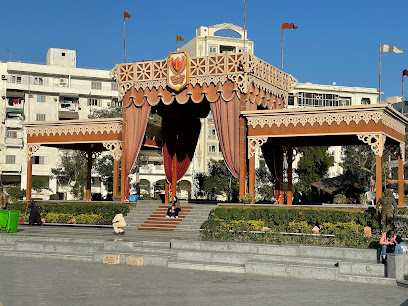
El-Montazah Park - حديقه المنتزه
Escape to El-Montazah Park in Port Said: Where lush gardens meet the Mediterranean coast, offering history, nature, and tranquil beauty.
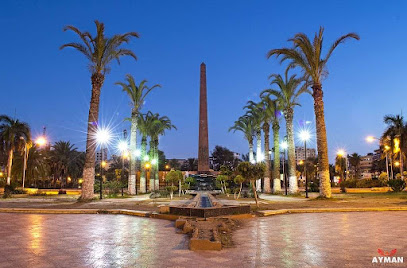
El Mesala Garden
Escape to the tranquility of El Mesala Garden in Port Said, a lush retreat with diverse flora and historical significance.
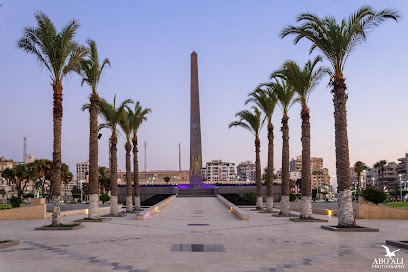
Salt Mountain.
Experience the unexpected: Salt Mountain in Port Fouad offers a surreal, snow-like landscape in the heart of Egypt's desert, perfect for adventure and photography.
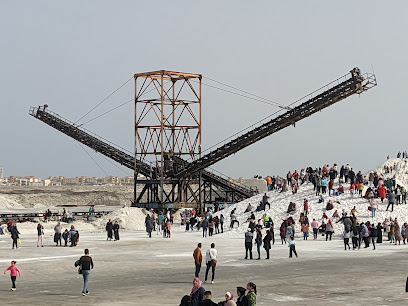
Port Said Military Museum
Explore Egypt's military history and the heroic tales of Port Said at this commemorative museum.
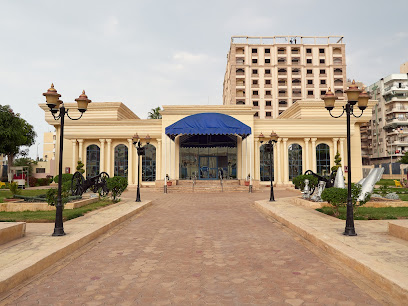
The Lighthouse of Port Said
Explore the historic Port Said Lighthouse, a 19th-century architectural marvel and a symbol of Egypt's maritime heritage.
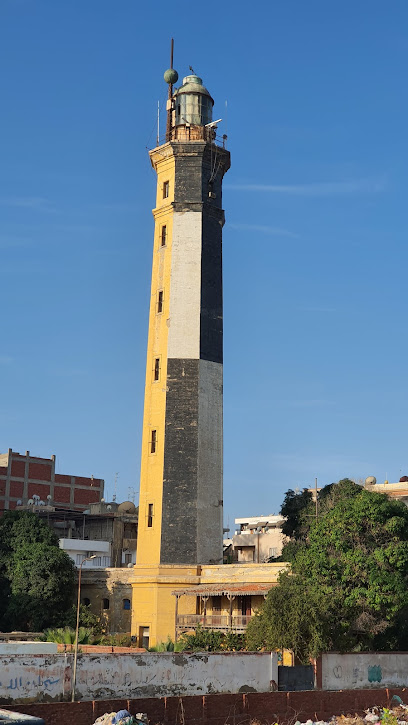
Ferdinand De Lesseps statue Base قاعدة تمثال فرديناند ديليسبس
Visit the base of the Ferdinand De Lesseps statue in Port Said, a landmark commemorating the creator of the Suez Canal and a pivotal moment in history.
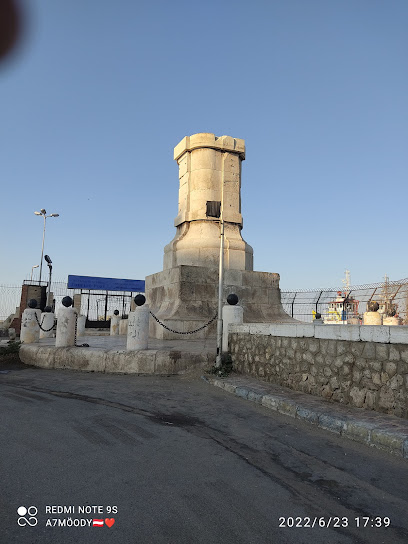
شاطئ بورسعيد
استمتع بأشعة الشمس والرمال والمياه في شاطئ بورسعيد، الوجهة المثالية لقضاء عطلة لا تُنسى على ساحل البحر الأبيض المتوسط.
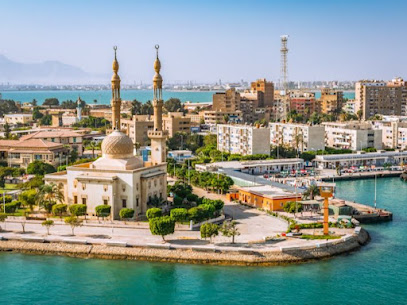
Museum of Modern Art in Port Said
Discover modern Egyptian art at Port Said's cultural hub, showcasing paintings, sculptures, and more since 1995. A vibrant testament to the city's artistic spirit.
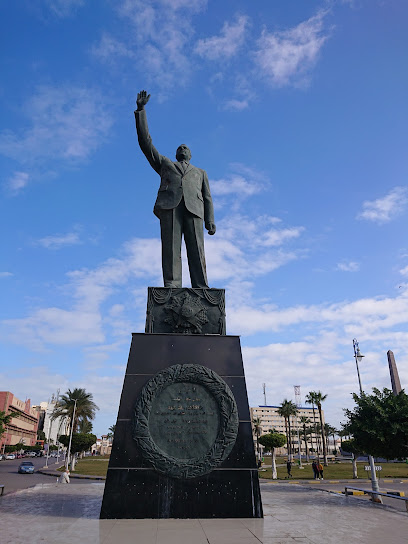
كورنيش بورسعيد
استمتع بأجواء بورسعيد الساحرة على كورنيشها الممتد، حيث التاريخ يلتقي بالترفيه.
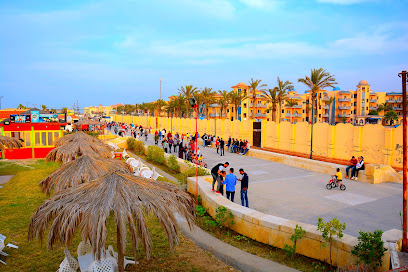
ڤيلات هيئة قناة السويس بورفؤاد
Experience French-inspired architecture in Egypt at the historic Suez Canal Authority Villas in Port Fouad. A unique blend of cultures awaits!
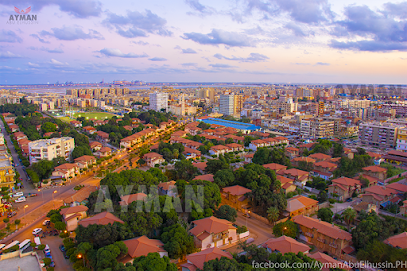
فيلا مسلسل ليالي اوجيني
فيلا مسلسل ليالي أوجيني ببور فؤاد: تحفة معمارية شهدت تصوير المسلسل الشهير، وتجسد سحر حقبة الأربعينيات في مصر.
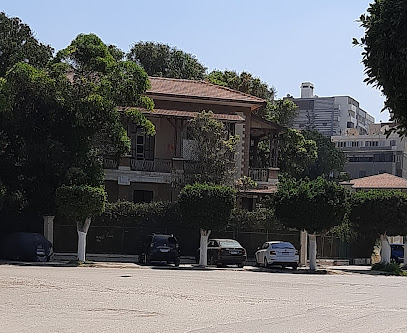
ساحة مصر
A modern landmark in Port Said, Egypt Square offers cultural insights and scenic views of the Suez Canal.
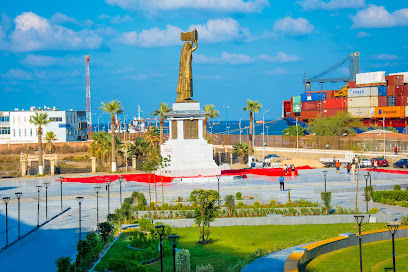
Old Historical buildings
Discover Port Said's architectural gems: historic buildings blending Egyptian and European styles, reflecting a vibrant cosmopolitan past.
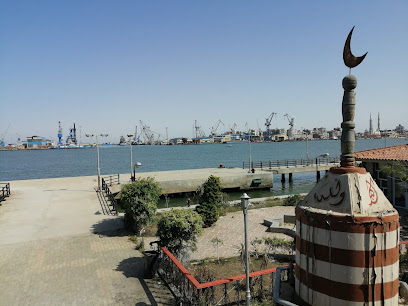
طرح البحر
Experience the vibrant coastal charm of Port Said at Tarh El-Bahr, a scenic promenade with stunning sea views, dining, and rich history.
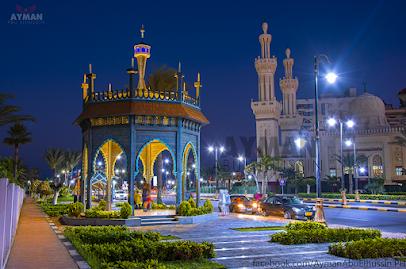
Unmissable attractions to see
Ferial Garden
Discover the enchanting Ferial Garden in Port Said, a tranquil haven filled with diverse plants, unique decorations, and serene walking paths.
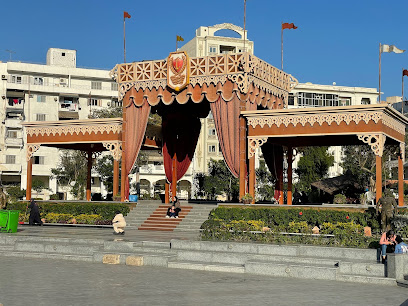
El-Montazah Park - حديقه المنتزه
Discover the beauty of El-Montazah Park, a tranquil haven in Port Said, blending lush gardens, historical charm, and stunning coastal views.
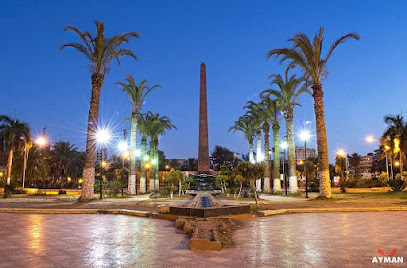
El Mesala Garden
Explore the lush beauty of El Mesala Garden in Port Said, a tranquil oasis perfect for relaxation and family outings amidst vibrant flora.
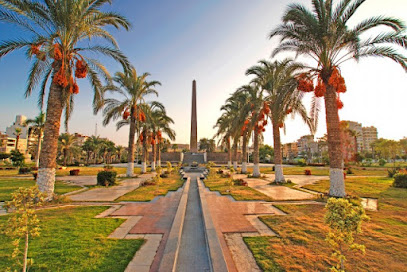
Salt Mountain.
Explore the breathtaking natural beauty of Salt Mountain in Port Fouad City, a stunning destination that offers unique salt formations and serene landscapes.
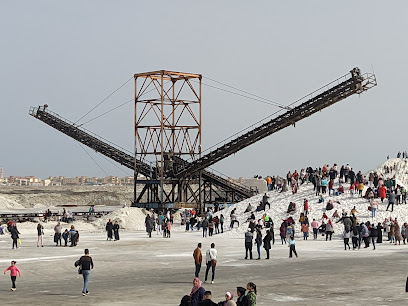
Port Said Military Museum
Explore the fascinating military history of Egypt at the Port Said Military Museum, a captivating destination for history lovers and curious travelers.
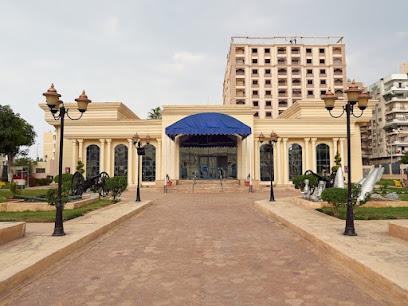
Port Said Military Museum
Discover the rich military history of Port Said at the Military Museum, a treasure trove of artifacts and exhibits that narrate the city’s remarkable past.
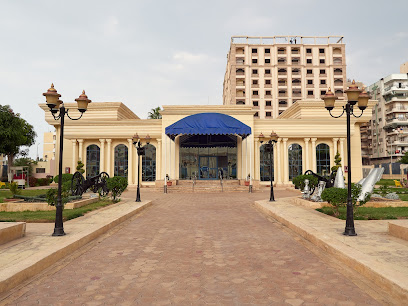
The Lighthouse of Port Said
Discover the historical significance and breathtaking views at the Lighthouse of Port Said, a must-visit landmark on your Egyptian adventure.
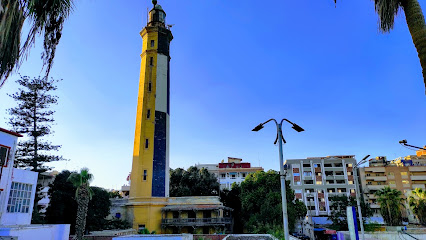
شاطئ بورسعيد
Explore the breathtaking Shati' Boursaid in Port Said, Egypt, a perfect hiking area for nature lovers and adventure seekers.
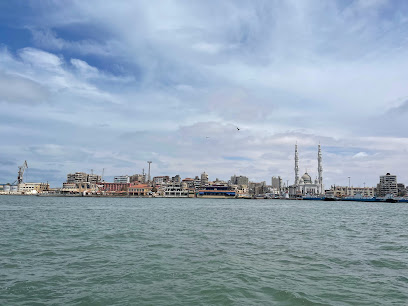
Museum of Modern Art in Port Said
Discover the essence of contemporary creativity at the Museum of Modern Art in Port Said, where art meets culture in a vibrant showcase.
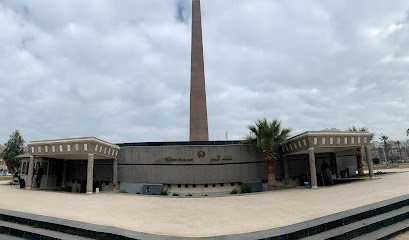
ڤيلات هيئة قناة السويس بورفؤاد
Discover the serene beauty and rich history of the Villas of the Suez Canal, a captivating destination in Port Said, Egypt.
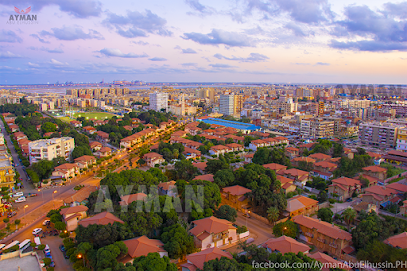
فيلا مسلسل ليالي اوجيني
Explore Villa Maslousl Lialy Oujeni in Port Fouad: A serene retreat rich in culture and history, perfect for every traveler.
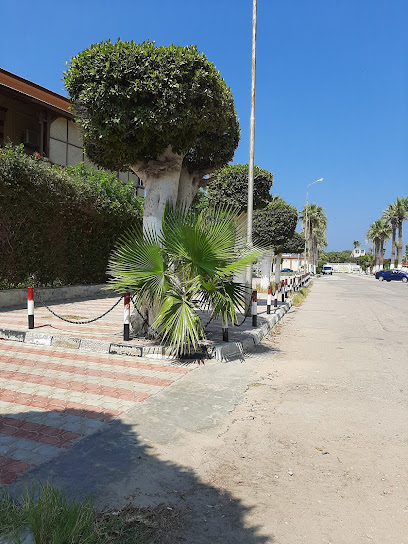
محمية طيور الفلامينجو المهاجرة
Discover the beauty of the Migratory Bird Sanctuary in Port Fouad, a serene haven for nature lovers and birdwatching enthusiasts.
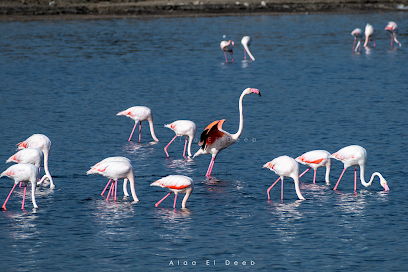
ساحة مصر
Discover the beauty and tranquility of Saharet Misr, a serene park in Port Said offering stunning canal views and a taste of local culture.
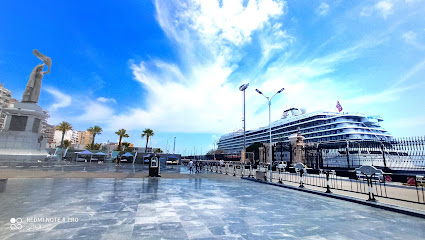
ساحه الحمام بور سعيد
Explore Port Said's ساحه الحمام for stunning beaches, rich history, and vibrant local culture along the Mediterranean coastline.
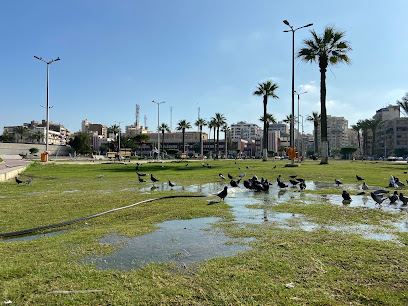
بور سعيد
Discover Port Said, Egypt's vibrant coastal city rich in history, culture, and breathtaking views of the Suez Canal.
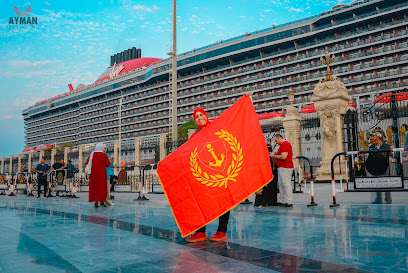
Essential places to dine
Port Said Fish Market
Explore Port Said Fish Market: A vibrant seafood haven offering fresh catches and authentic culinary experiences along Egypt's Mediterranean coast.
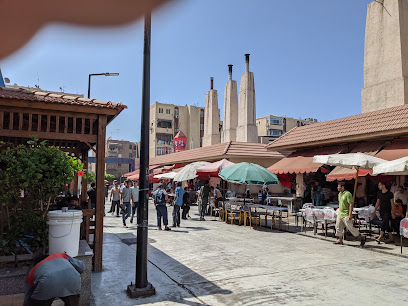
مطعم العيوطي
Discover authentic Egyptian cuisine at مطعم العيوطي - home of delicious falafel and fast food in Port Fouad City.
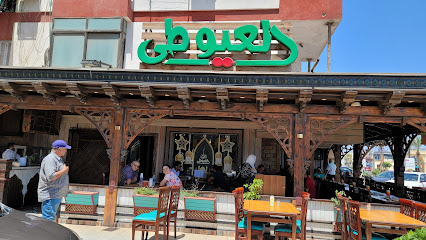
Moodz Burger
Savor delicious burgers and fast food at Moodz Burger in Port Said – a must-visit culinary hotspot for travelers.
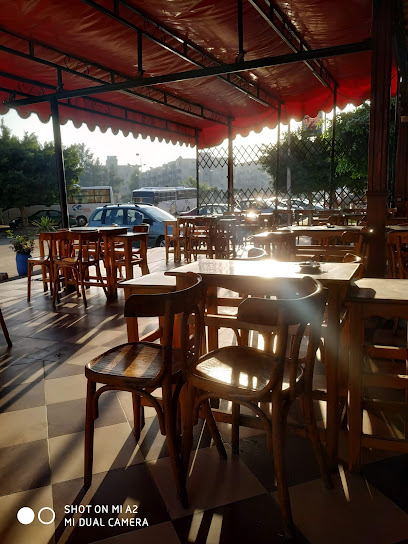
El Borg Restaurants For Sea Food
Experience authentic seafood delicacies at El Borg in Port Said - where freshness meets flavor in every bite.
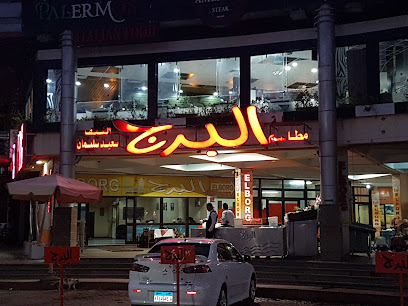
El Kastan Fish Restaurant الكاستن
Discover El Kastan Fish Restaurant in Port Said for fresh seafood delights against stunning Mediterranean views.
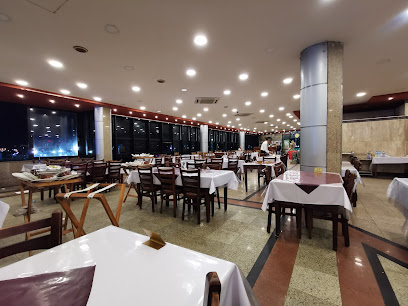
عبدة كفتة Abdou Kofta
Experience the essence of Egyptian barbecue at Abdou Kofta in Port Said—where flavor meets tradition in every bite.
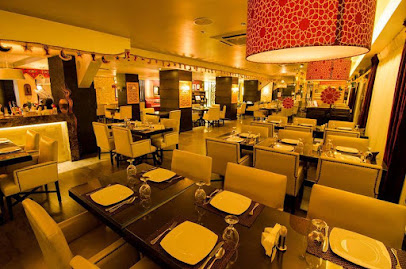
Portofish
Experience fresh seafood delights at Portofish in Port Said - where every dish tells a story from the sea.
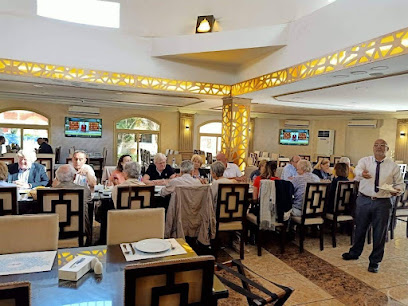
HEART ATTACK
Discover Heart Attack in Port Said: where fast food meets vibrant flavors in an energetic atmosphere.
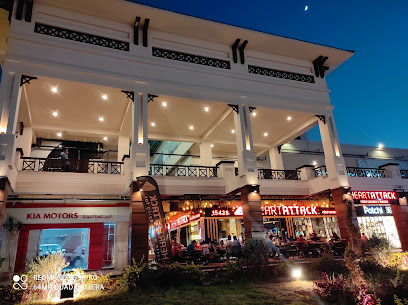
Alfa Piatto
Discover authentic Italian flavors at Alfa Piatto in Port Said - where every meal is a celebration of taste.
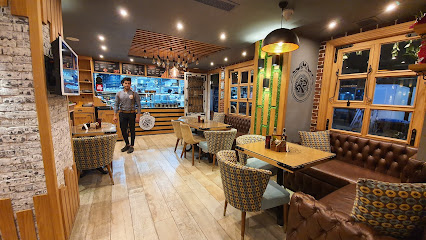
Makane Cafe
Discover authentic Japanese izakaya dining at Makane Cafe in Port Fouad—where traditional flavors meet cozy ambiance.
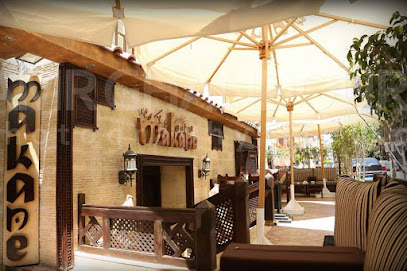
High burger
Experience the best of Port Said's fast food scene at High Burger - where delicious flavors meet vibrant atmosphere.
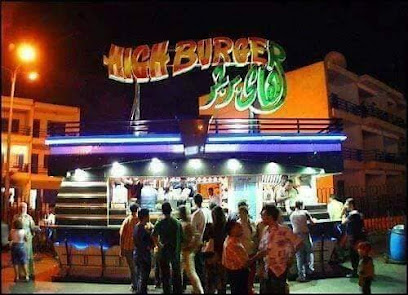
CAVIAR LOUNGE
Discover the elegance of seafood dining at Caviar Lounge in Port Said - where luxury meets exquisite taste.
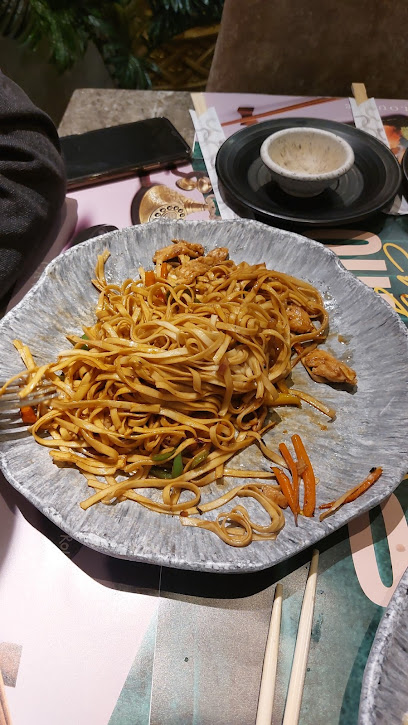
TIVOLI
Experience exquisite Western cuisine at Tivoli in Port Said—where culinary excellence meets warm hospitality.
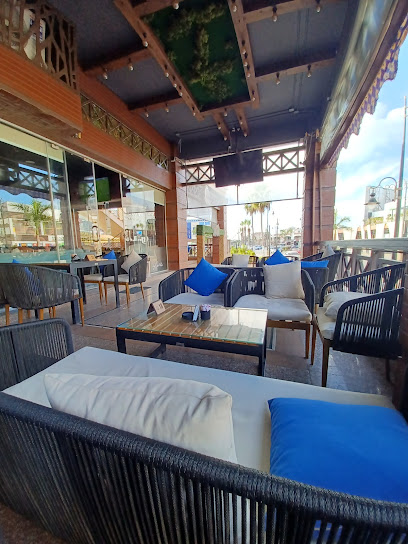
Grand Shawarma Restaurant - جراند شاورما
Discover authentic Middle Eastern flavors at Grand Shawarma Restaurant in Port Said - where every bite tells a story.
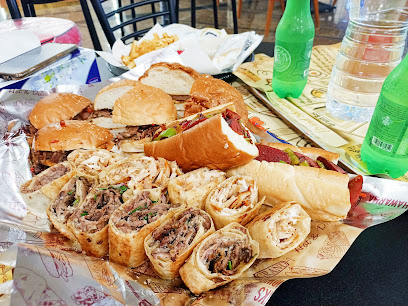
Restaurant and Port Said Fish replaces
Experience the rich flavors of Port Said's maritime culture at this renowned seafood restaurant offering fresh catches and authentic Egyptian dishes.
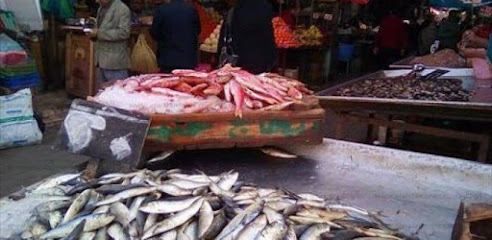
Markets, malls and hidden boutiques
Sun Mall
Discover the ultimate shopping experience at Sun Mall in Port Said, where diverse stores, delightful dining, and vibrant entertainment await.
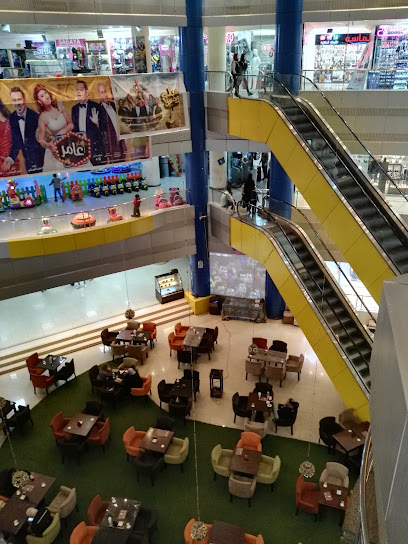
Egypt Duty Free Shops
Explore the Egypt Duty Free Shops in Port Said for tax-free shopping on luxury goods, electronics, and more. A must-visit for savvy travelers seeking great deals.
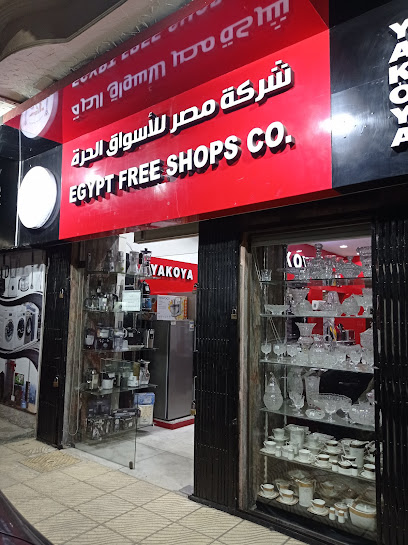
collection store
Explore the vibrant gift shop in Port Said, offering unique souvenirs and local crafts that capture the essence of Egyptian culture.
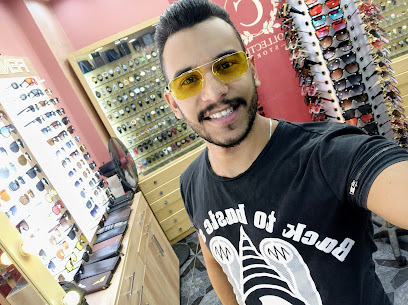
شارع مصر
Discover the ultimate shopping experience at Port Fouad's vibrant outlet mall, featuring top brands, local treasures, and delightful dining options.
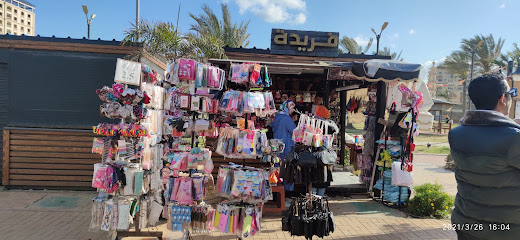
onestopforkids
Discover stylish and quality baby clothing at Onestopforkids in Al Arab. Perfect for parents seeking the best for their little ones.
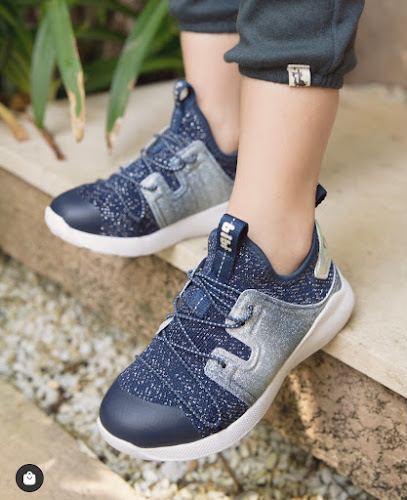
Original brands in port said
Explore Original Brands in Port Said for a unique shopping experience with local fashion trends and vibrant styles.
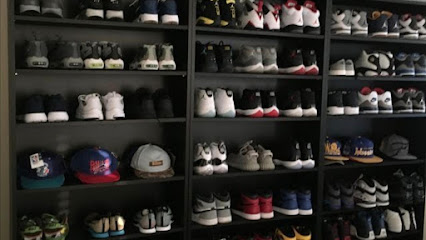
Port Said Hydrographics Elsharkawy
Explore unique fashion accessories that embody the spirit of Port Said at Hydrographics Elsharkawy in Port Fouad City.
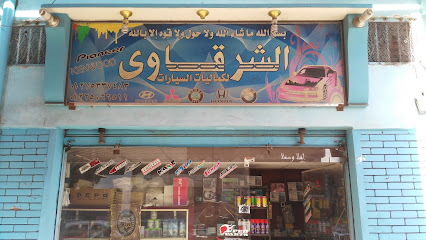
دكان الملح
Explore دكان الملح in Port Fouad for unique gifts and local crafts that embody the spirit of Egyptian culture.
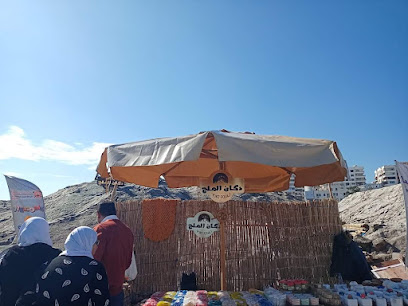
Dubai store
Explore the vibrant fashion scene at Dubai Store in Port Fouad City, offering a diverse range of stylish clothing for every taste.
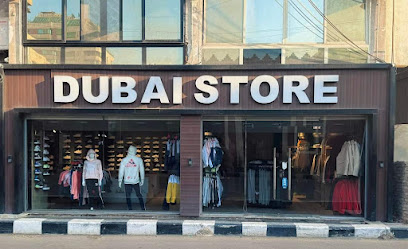
أبو السيد مول بورسعيد لمنتجات الأسماك المملحه والمدخنه
Discover the authentic taste of Port Said at Abu El-Sayed Mall, your destination for premium smoked and salted fish products.
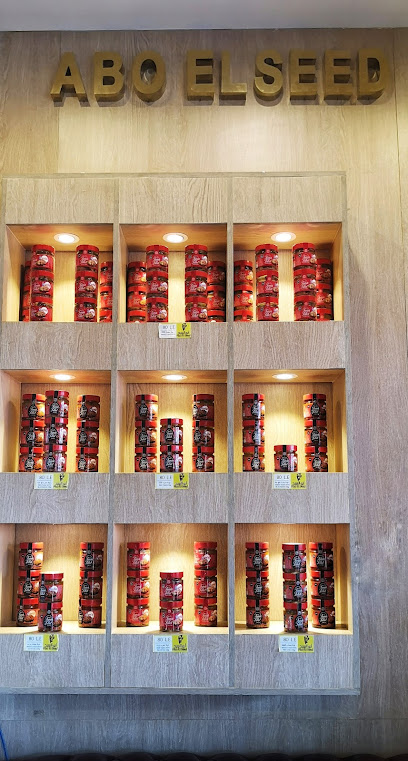
Malika store port said
Explore unique fashion at Malika Store in Port Said, where local style meets modern trends in an inviting shopping experience.
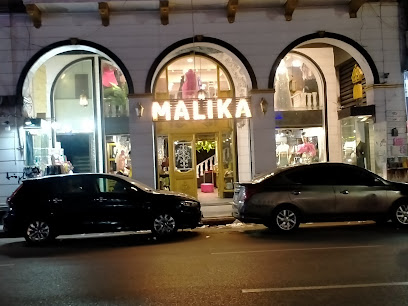
N.silver store
Discover the elegance of local craftsmanship at N. Silver Store, an outlet mall and jewelry haven in the heart of Port Said.
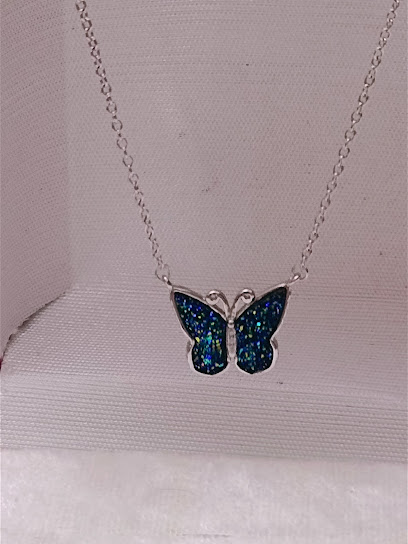
مركاتو شوز
Explore مركاتو شوز in El Sharq for a unique shopping experience featuring stylish clothing that reflects local culture and contemporary trends.

محل نيويورك للملابس
Explore the New York Clothing Store in Port Said for trendy fashion and unique styles that reflect local culture and contemporary trends.
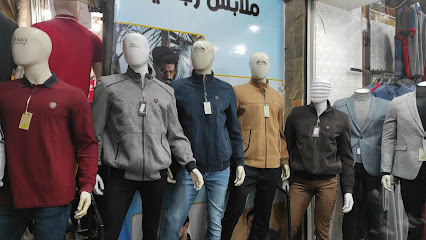
فرح أرت جاليري
Explore فرح أرت جاليري, where exquisite Egyptian home goods and local artistry come together to offer unique treasures for every traveler.
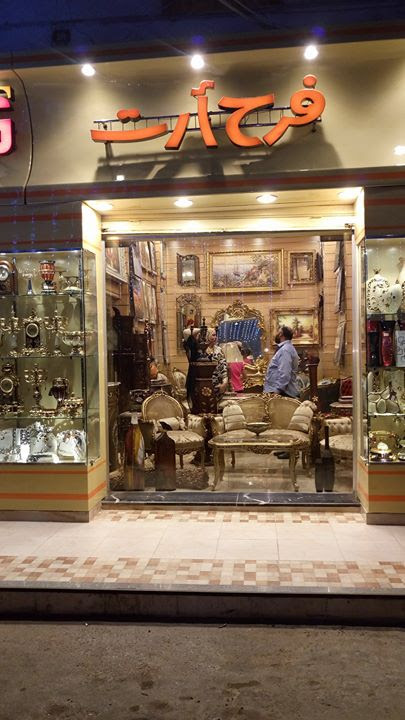
Essential bars & hidden hideouts
Moodz Burger
Discover the best burgers in Port Said at Moodz Burger, where delicious flavors and fast service come together for an unforgettable dining experience.
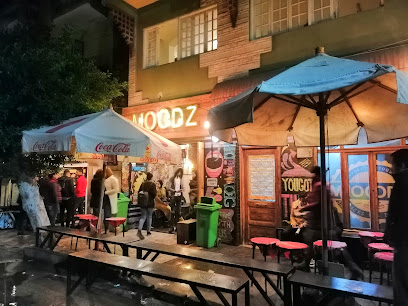
El Borg Restaurants For Sea Food
Experience the best of Port Said's seafood scene at El Borg, where fresh flavors meet stunning waterfront views.
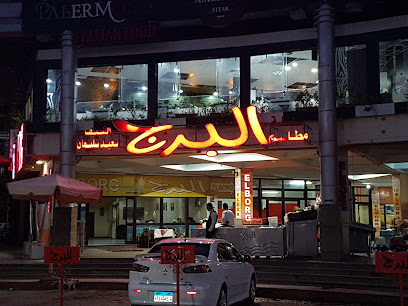
Doaiah Beach & Kite Club
Experience the perfect blend of adventure and relaxation at Doaiah Beach & Kite Club, Port Said's premier destination for beach lovers and thrill-seekers.
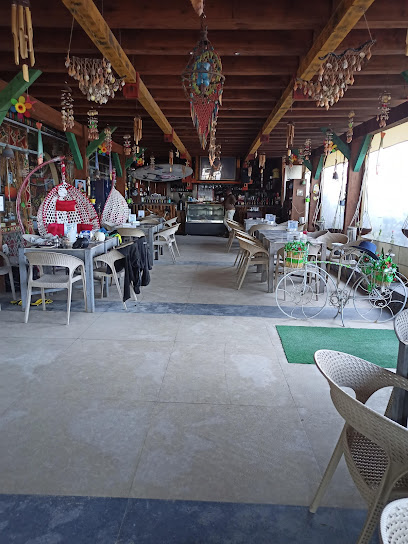
Central Perk Cafe
Discover the charm of Central Perk Cafe in Port Said, where delightful coffee, tasty treats, and a cozy atmosphere await every traveler.
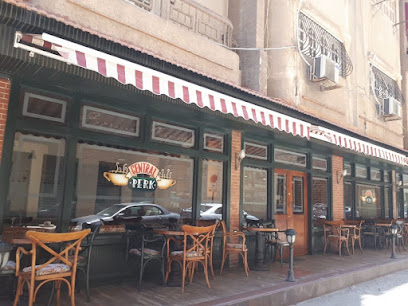
Central Perk
Discover the cozy ambiance and delicious offerings of Central Perk, the heart of Port Fouad's coffee culture.
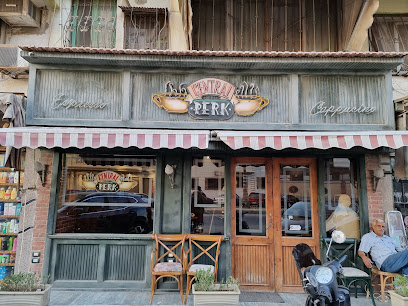
Hotel De La Poste فندق دى لا بوست بورسعيد
Discover the culinary delights of Hotel De La Poste in Port Said, where exquisite pastries and local flavors come together in a charming setting.
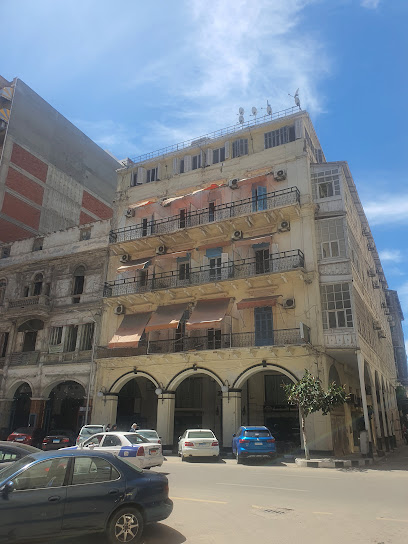
Black Fox Coffee
Discover the vibrant atmosphere of Black Fox Coffee, a trendy cocktail bar and café in Port Said, perfect for relaxation and socializing.
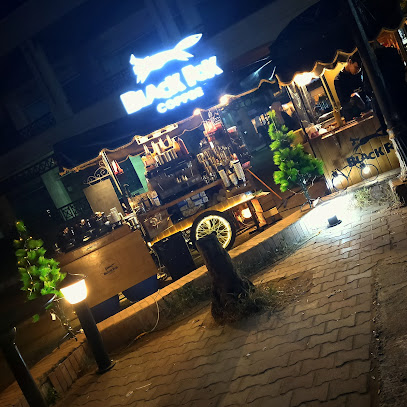
Drinkie Port Said درينكز بورسعيد
Experience the vibrant nightlife of Port Said at Drinkie Port Said, where exquisite drinks and a lively atmosphere await.
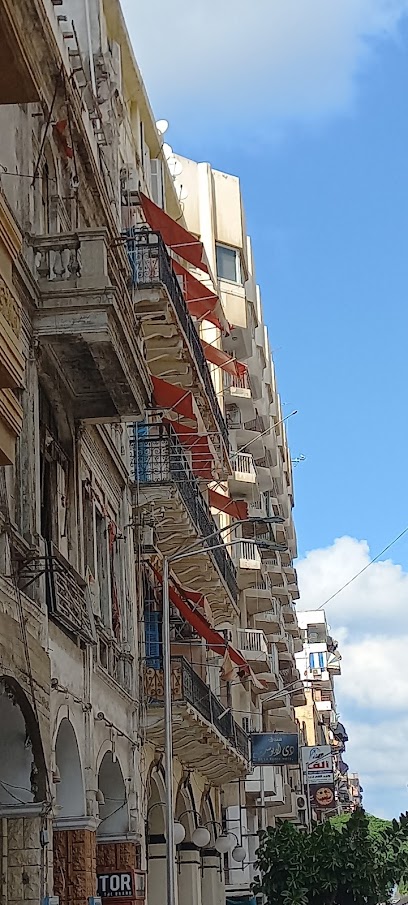
بلاچ ومطعم ديليسبس De Lesseps
Experience exquisite dining at De Lesseps Beach, where local flavors meet stunning Mediterranean views in Port Said.
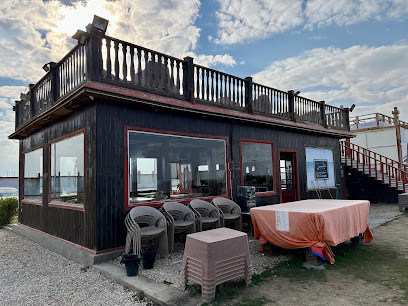
Spazio restaurant&cafe - port said
Discover the local flavors at Spazio Restaurant & Cafe in Port Said, offering fast food delights in a vibrant atmosphere.
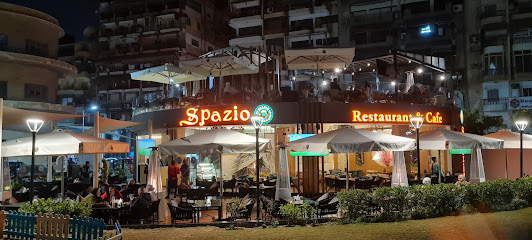
La Partita
Savor the rich flavors of Egypt at La Partita, a must-visit restaurant in El Manakh, Port Said, blending local cuisine with international favorites.
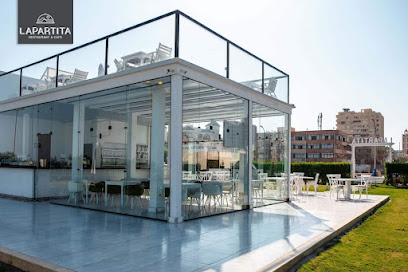
الجراج كافيهات
Experience the vibrant nightlife at الجراج كافيهات, a charming bar in Port Said offering refreshing drinks and a lively atmosphere.
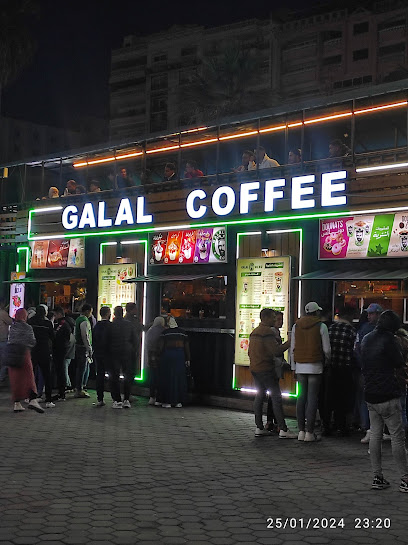
CAP D’OR RESTAURANT & Café - مطعم وكافيتريا كاب دور
Discover Port Said's culinary treasure at Cap D'Or Restaurant & Café, where grilled delights and coastal views create an unforgettable dining experience.
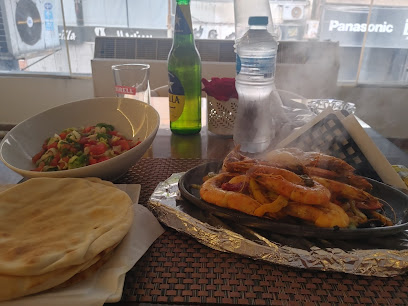
عصائر وفواكه أبو عمر
Discover the vibrant flavors of fresh juices at Abu Omar Juice Bar in Port Said, a must-visit for every traveler.
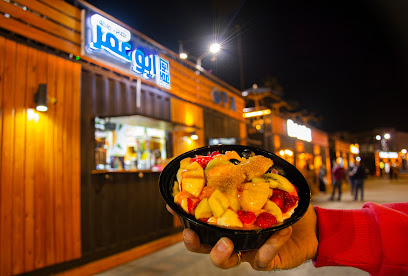
Local Phrases
-
- Helloمرحبا
[marhaba] - Goodbyeوداعا
[wada'an] - Yesنعم
[naam] - Noلا
[la] - Please/You're welcomeمن فضلك/على الرحب والسعة
[min fadlak/ala arrahb wasi'a] - Thank youشكرا
[shukran] - Excuse me/Sorryعذرا
[azr] - How are you?كيف حالك؟
[kayfa halak?] - Fine. And you?بخير. وأنت؟
[bikhair. wa ant?] - Do you speak English?هل تتحدث الإنجليزية؟
[hal tatahadath al'inglizia?] - I don't understandأنا لا أفهم
[ana la afham]
- Helloمرحبا
-
- I'd like to see the menu, pleaseأريد أن أرى القائمة، من فضلك
[urid an ara alqaimah, min fadlak] - I don't eat meatأنا لا آكل اللحوم
[ana la akl allahum] - Cheers!في صحتك
[fi sahtak] - I would like to pay, pleaseأريد أن أدفع، من فضلك
[urid an adfae, min fadlak]
- I'd like to see the menu, pleaseأريد أن أرى القائمة، من فضلك
-
- Help!النجدة!
[alnajdah!] - Go away!انصرف!
[ansarif!] - Call the Police!اتصل بالشرطة!
[itassal bialshurta!] - Call a doctor!اتصل بالطبيب!
[itassal bialtabib!] - I'm lostأنا ضائع
[ana daye'] - I'm illأنا مريض
[ana mareed]
- Help!النجدة!
-
- I'd like to buy...أريد أن اشتري...
[urid an ashtari...] - I'm just lookingأنا فقط أتفرج
[ana faqat atfarij] - How much is it?بكم هذا؟
[bi kam hadha?] - That's too expensiveهذا غالي جدا
[hadha ghali jiddan] - Can you lower the price?هل يمكنك خفض السعر؟
[hal yumkinuk kaff alsi'r?]
- I'd like to buy...أريد أن اشتري...
-
- What time is it?كم الساعة؟
[kam alssa'ah?] - It's one o'clockالساعة الواحدة
[alssa'ah alwahidah] - Half past (10)النصف بعد العاشرة
[alnusf ba'd al'ashirah] - Morningالصباح
[assabah] - Afternoonالظهر
[alduhur] - Eveningالمساء
[almasa'] - Yesterdayأمس
[ams] - Todayاليوم
[alyawm] - Tomorrowغدا
[ghadan] - 1واحد
[wahid] - 2اثنان
[ithnan] - 3ثلاثة
[thalatha] - 4أربعة
[arba'a] - 5خمسة
[khamsa] - 6ستة
[sitta] - 7سبعة
[sab'a] - 8ثمانية
[thamania] - 9تسعة
[tasia] - 10عشرة
[asharah]
- What time is it?كم الساعة؟
-
- Where's a/the...?أين ...؟
[ayn ...?] - What's the address?ما هو العنوان؟
[ma huwa al'unaan?] - Can you show me (on the map)?هل يمكنك أن تريني (على الخريطة)؟
[hal yumkinuk an turini (ala alkharitah)?] - When's the next (bus)?متى يكون الحافلة التالية؟
[mata yakun alhafilat altaliyah?] - A ticket (to ....)تذكرة (إلى ...)
[tadhkirah (ila ...)]
- Where's a/the...?أين ...؟
History of Port Said
-
Port Said was established in 1859 by Said Pasha, the Viceroy of Egypt, as a critical part of the Suez Canal project. The city was strategically located at the northern entrance of the canal, serving as the gateway between the Mediterranean Sea and the Red Sea. Its creation marked a significant development in global maritime trade.
-
The construction of the Suez Canal, one of the most significant engineering feats of the 19th century, began in 1859 and was completed in 1869. The canal, which stretches 120 miles (193 kilometers) from Port Said to Suez, was designed by the French engineer Ferdinand de Lesseps. It revolutionized international shipping by providing a direct route between Europe and Asia, bypassing the lengthy and treacherous journey around the Cape of Good Hope.
-
In 1882, following the Urabi Revolt, British forces occupied Egypt, including Port Said, to protect their interests in the Suez Canal. The city became a crucial military and naval base for the British, who maintained control over the canal until the mid-20th century. The occupation significantly influenced the city's development and architecture.
-
During World War II, Port Said played a strategic role due to its location and the presence of the Suez Canal. The city was subjected to air raids by Axis powers, and its port facilities were extensively used by Allied forces. The wartime activities brought both destruction and an influx of military personnel, leaving a lasting impact on the city's infrastructure and population.
-
The nationalization of the Suez Canal by Egyptian President Gamal Abdel Nasser in 1956 led to the Suez Crisis. Britain, France, and Israel launched a military intervention to regain control of the canal. Port Said was heavily bombarded and invaded during the conflict, leading to significant destruction and loss of life. The crisis ended with the withdrawal of foreign troops and the reaffirmation of Egyptian sovereignty over the canal.
-
In the decades following the Suez Crisis, Port Said underwent extensive rebuilding and modernization. The city has grown into a bustling urban center with a diverse population. Its rich cultural heritage is reflected in its architecture, museums, and vibrant local markets. Port Said continues to be a crucial hub for maritime trade and a symbol of Egypt's resilience and strategic importance.
Port Said Essentials
-
Port Said is accessible via Cairo International Airport, which is approximately 200 kilometers away. From Cairo, you can take a bus, taxi, or private car to Port Said. The journey typically takes around 2 to 3 hours by road. Alternatively, there are train services available from Cairo to Port Said, offering a scenic route along the Nile Delta.
-
Port Said is a relatively small city, and many of the main attractions are within walking distance. Local taxis are readily available and relatively inexpensive for longer trips. Public buses and minibuses operate within the city and can connect you to nearby areas. Renting a car is another convenient option for exploring the surrounding regions at your own pace.
-
The official currency in Egypt is the Egyptian Pound (EGP). Credit cards are accepted in most hotels, restaurants, and larger shops, but it is advisable to carry cash for smaller establishments and markets. ATMs are widely available in Port Said, so withdrawing cash is generally convenient. Ensure you have enough small denominations for tipping and minor purchases.
-
Port Said is generally a safe destination for tourists, but it is always wise to take standard precautions. Avoid walking alone at night in unfamiliar areas and be cautious of your belongings in crowded places. Areas around the port and some parts of the old city can be more prone to petty crimes targeting tourists, such as pickpocketing, so stay vigilant.
-
In case of emergency, dial 122 for police, 123 for ambulance, and 180 for fire services. The local police station and several medical facilities are available in Port Said. It is highly recommended to have travel insurance that covers medical emergencies. For minor health issues, pharmacies are accessible throughout the city, where you can purchase over-the-counter medications.
-
Fashion: Do dress modestly, especially when visiting religious sites. Avoid wearing revealing clothing. Religion: Do respect local customs and traditions. Always take off your shoes when entering mosques. Public Transport: Do be respectful and offer your seat to elderly passengers. Don't eat or drink on public transport. Greetings: Do greet people with a handshake. A slight bow of the head is also a sign of respect. Eating & Drinking: Do try local delicacies and accept food offerings graciously. Don't refuse hospitality, as it is considered impolite.
-
To experience Port Said like a local, visit the traditional markets (souks) where you can buy fresh produce and handmade crafts. Engage with locals, as they are often friendly and willing to share stories about the city's history and culture. Don't miss visiting the Suez Canal, which is a significant landmark. For a unique experience, take a ferry ride across the canal and enjoy the bustling port activities. Also, savor the fresh seafood available at local eateries along the waterfront.
Trending Landmark in Port Said
-
Ferial Garden
-
El-Montazah Park - حديقه المنتزه
-
El Mesala Garden
-
Salt Mountain.
-
Port Said Military Museum
-
The Lighthouse of Port Said
-
Ferdinand De Lesseps statue Base قاعدة تمثال فرديناند ديليسبس
-
شاطئ بورسعيد
-
Museum of Modern Art in Port Said
-
كورنيش بورسعيد
-
ڤيلات هيئة قناة السويس بورفؤاد
-
فيلا مسلسل ليالي اوجيني
-
ساحة مصر
-
Old Historical buildings
-
طرح البحر
Nearby Cities to Port Said
-
Things To Do in Damietta
-
Things To Do in Ismailia
-
Things To Do in Zagazig
-
Things To Do in Tanta
-
Things To Do in Suez
-
Things To Do in Cairo
-
Things To Do in Alexandria
-
Things To Do in Ashdod
-
Things To Do in Beersheba
-
Things To Do in Jaffa
-
Things To Do in Holon
-
Things To Do in Tel Aviv
-
Things To Do in Ramat Gan
-
Things To Do in Herzliya
-
Things To Do in Hod Hasharon









